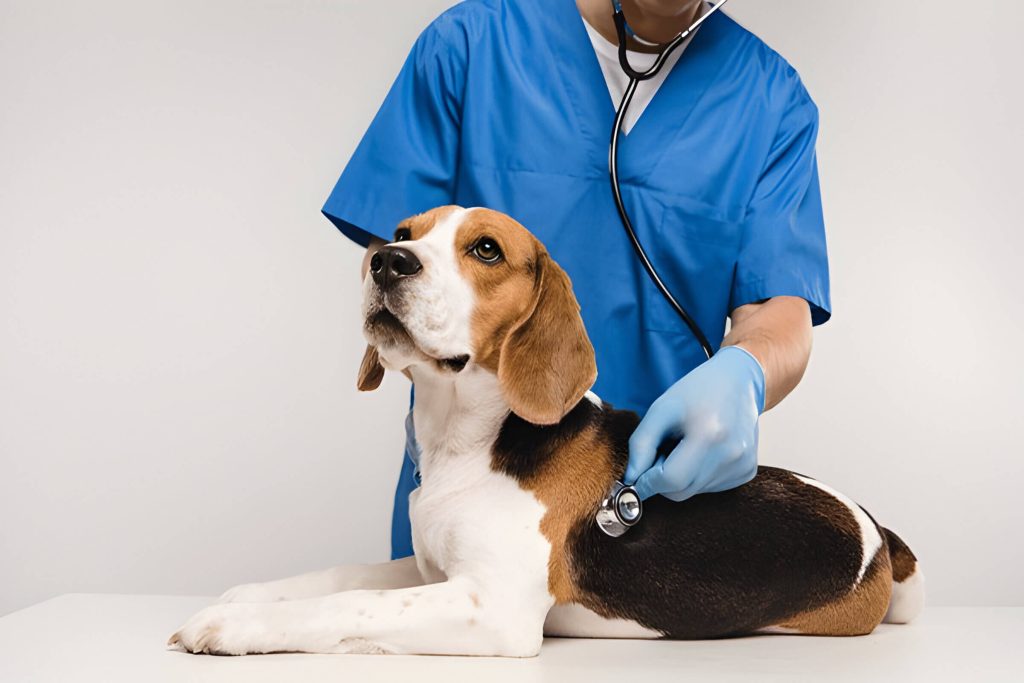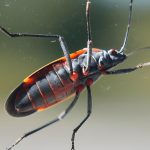
Hookworms are a serious parasitic infection in dogs, posing significant health risks if untreated. This guide covers recognizing early signs, effective treatments, and preventive measures. Understanding these aspects helps dog owners keep their pets healthy and free from infestations. We’ll discuss the importance of regular veterinary check-ups, proper diet, and hygiene in protecting your canine companion against hookworms.
Introduction to Hookworms in Dogs
Hookworms in dogs are a common parasitic infection that can have serious health implications if not properly managed. Understanding hookworm and its impact on canine health is essential for any pet owner.
Hookworms are small, thin parasites that attach themselves to the intestinal walls of dogs, feeding on their blood. This can lead to significant blood loss, anemia, and even death in severe cases. Canine hookworm infection is often transmitted through contaminated soil or feces, making it easy for dogs to become infected during their daily activities.
Symptoms of hookworm infection in dogs include weight loss, diarrhea (which may be bloody), lethargy, and pale gums due to anemia. Puppies are particularly vulnerable because their immune systems are not fully developed. Early detection and treatment are crucial; veterinarians typically diagnose hookworm through a fecal examination.
Preventative measures include regular deworming treatments and maintaining good hygiene practices such as cleaning up after your dog promptly and avoiding areas known to be contaminated with feces. By understanding the risks associated with hookworms in dogs and taking proactive steps, you can help ensure your furry friend’s health and well-being.
Recognizing the Signs of Hookworm Infection in Dogs
Hookworm infections are a common parasitic issue that can significantly impact your dog’s health if left untreated. Being aware of the dog health symptoms associated with this condition is crucial for early detection and treatment. One of the primary signs of hookworm in dogs is anemia, which occurs because these parasites feed on the blood of their host. Symptoms of anemia include pale gums, lethargy, and weakness.
Another key indicator to watch for is gastrointestinal distress. Canine parasitic infection symptoms often manifest as diarrhea, sometimes with traces of blood, and vomiting. In puppies, these symptoms can be particularly severe due to their smaller size and developing immune systems.
Weight loss and poor coat condition are additional hookworm signs that should not be ignored. A dog suffering from a hookworm infection may also exhibit coughing if the larvae migrate through the lungs.
If you notice any combination of these symptoms in your dog, it’s essential to consult your veterinarian promptly for a proper diagnosis and treatment plan. Early intervention can help mitigate the severe impacts of this parasitic infection on your dog’s overall health.
Treatment Options for Hookworm Infections in Dogs

Hookworm infections in dogs are a common but serious health concern that requires prompt and effective treatment. Treating hookworms in dogs typically involves the use of deworming medications specifically designed to eliminate these parasites. Veterinary treatment for hookworms often starts with an accurate diagnosis, which may include fecal examinations to identify the presence of hookworm eggs.
Once diagnosed, your veterinarian will prescribe appropriate deworming medications for dogs. These medications, such as fenbendazole, milbemycin oxime, or pyrantel pamoate, work by killing the adult worms and their larvae. It’s important to follow the vet’s instructions carefully and complete the full course of treatment to ensure all parasites are eradicated.
In addition to medication, dog parasite treatment may also include supportive care such as nutritional support and managing any anemia or dehydration caused by the infection. Regular follow-up visits with your veterinarian are crucial to monitor your dog’s progress and prevent reinfection.
Preventative measures play a vital role in keeping your pet healthy. Regular deworming schedules, maintaining good hygiene practices, and controlling environmental factors can significantly reduce the risk of hookworm infections in dogs. By staying informed about treating hookworms in dogs and adhering to veterinary advice, you can ensure your furry friend remains happy and healthy.
The Importance of Regular Veterinary Check-Ups for Early Detection
Regular veterinary check-ups are crucial for maintaining your dog’s health and well-being. These routine visits allow veterinarians to perform comprehensive health assessments, ensuring that any potential issues are identified and addressed early on. One key benefit of regular vet visits for dogs is the early detection of parasites in pets. Parasites such as fleas, ticks, and intestinal worms can cause significant discomfort and lead to serious health problems if left untreated.
During a dog health check-up, your veterinarian will conduct a thorough examination that includes checking vital signs, evaluating dental health, and assessing the condition of your dog’s skin and coat. Additionally, they may recommend blood tests or fecal exams to detect internal parasites or other underlying conditions that might not be immediately visible.
Early detection through regular vet visits can significantly improve treatment outcomes and prevent minor issues from escalating into more severe problems. By staying proactive about your dog’s healthcare with routine check-ups, you can ensure a longer, healthier life for your furry companion.
Tips and Best Practices for Preventing Hookworms in Dogs
Hookworms are a common parasitic threat to dogs that can lead to serious health issues if left untreated. Implementing effective prevention strategies is crucial for maintaining your dog’s well-being. Here are some essential tips and best practices for preventing hookworms in dogs:
1. Regular Veterinary Check-Ups: Regular visits to the veterinarian are vital for early detection and prevention of hookworm infections. Routine fecal examinations can help identify the presence of parasites before they cause significant harm.
2. Administer Preventive Medications: There are various preventive medications available that can protect your dog from hookworms and other parasites. Consult with your vet to determine the best option for your pet based on their age, weight, and health status.
3. Maintain Clean Living Environments: Ensuring that your dog’s living area is clean and free from fecal matter is crucial in preventing hookworm infestations. Regularly clean up after your dog, especially in areas where they play or rest.
4. Practice Good Hygiene: Always wash your hands thoroughly after handling soil, sand, or anything that might be contaminated with feces. This helps prevent the accidental ingestion of hookworm larvae which can also affect humans.
5. Avoid Unfamiliar Areas: When walking or exercising your dog, avoid areas known to be contaminated with animal feces or frequented by stray animals, as these places may harbor hookworm larvae.
6. Monitor Your Dog’s Health: Keep an eye out for symptoms of hookworm infection such as diarrhea, weight loss, anemia, or lethargy. Early detection through observation can lead to prompt treatment and better outcomes.
By following these canine parasite prevention techniques and maintaining a proactive approach towards your dog’s health care regimen, you can significantly reduce the risk of hookworm infections and ensure a healthier life for your furry companion.
The Role of Diet and Hygiene in Preventing Hookworm Infestations
Hookworm infestations in dogs can be a serious health concern, but with proper diet and hygiene practices, they can be effectively prevented. Ensuring your dog’s diet and health are prioritized is the first step in safeguarding them against parasites.
A balanced and nutritious diet is essential for maintaining a strong immune system in dogs. Healthy diet tips for dogs include incorporating high-quality proteins, essential vitamins, and minerals into their meals. Foods rich in omega-3 fatty acids, such as fish oil, can also help bolster their immune defenses.
Maintaining dog hygiene to prevent parasites is equally crucial. Regularly bathing your dog with appropriate shampoos helps remove dirt and potential parasite eggs from their coat. Routine grooming sessions allow you to check for any signs of infestation early on.
Additionally, keeping your dog’s living environment clean is vital. Regularly washing their bedding and sanitizing areas where they spend most of their time reduces the risk of hookworm larvae thriving in these spaces.
By focusing on both a healthy diet and stringent hygiene practices, you can significantly reduce the chances of hookworm infestations in your furry friend. Prioritizing these aspects not only keeps them parasite-free but also contributes to their overall well-being.
Conclusion- Protect Your Dog from Hookworms with Vigilance and Care
Ensuring the health and well-being of your dog requires vigilance, especially when it comes to preventing hookworm infestations. These parasitic worms can cause significant health issues, including anemia, weight loss, and in severe cases, even death. Regular veterinary check-ups are crucial for early detection and treatment of hookworms.
Administering prescribed deworming medications as recommended by your veterinarian is an essential preventive measure. Additionally, maintaining a clean living environment by regularly cleaning up feces from your yard or garden can help minimize the risk of hookworm transmission.
It’s also important to be aware of the symptoms of hookworm infection in dogs, which include diarrhea, lethargy, and a dull coat. If you notice any signs that might indicate an infestation, seek veterinary advice immediately.
By staying informed and proactive about your dog’s health care routine, you can effectively protect them from the dangers posed by hookworms. A combination of regular vet visits, proper hygiene practices, and prompt medical attention will ensure that your furry friend remains happy and healthy for years to come.



